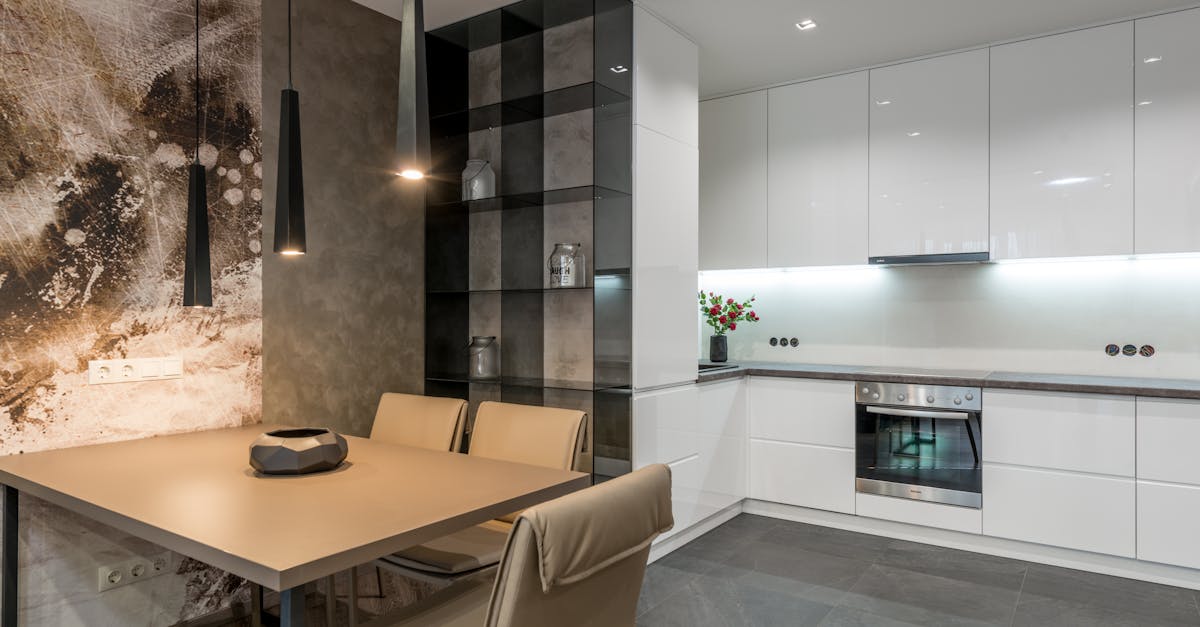Table of Contents
ToggleIn the world of home design, the kitchen reigns supreme as the heart of the home. It’s where culinary magic happens and late-night snack raids turn into gourmet feasts. But let’s face it, if your kitchen looks like a time capsule from the ’80s, it might be time for a makeover that even your microwave would approve of.
Modern Kitchen Design Concepts
Modern kitchen design concepts focus on creating functional yet stylish spaces. These concepts reflect contemporary lifestyles and preferences.
Minimalist Aesthetics
Minimalist aesthetics emphasize simplicity and cleanliness in kitchen design. Clean lines and uncluttered spaces define this style, reducing visual distractions. Neutral color palettes, such as whites and grays, create a calm atmosphere. Stainless steel appliances integrate seamlessly into minimalist designs, enhancing a cohesive look. Storage solutions, like hidden cabinets and drawer organizers, maintain order without sacrificing functionality. Minimalist kitchens prioritize quality over quantity, featuring fewer but well-crafted items.
Open Concept Layouts
Open concept layouts blend kitchens with adjacent living areas, promoting social interaction and connectivity. This design approach removes barriers, like walls, creating a spacious feel. Large islands often serve as multifunctional workspaces and dining areas. Natural light plays a crucial role, using large windows or sliding doors to enhance brightness. Designers often incorporate flexible furniture arrangements to accommodate gatherings. Open layouts suit modern lifestyles, fostering a sense of togetherness while cooking, dining, and entertaining.
Classic Kitchen Design Concepts
Classic kitchen design concepts blend elegance with functionality, providing lasting appeal. Timeless elements create spaces that feel both inviting and sophisticated.
Timeless Style
Traditional cabinetry often showcases intricate moldings and rich finishes, offering visual depth. Natural materials like wood and stone enhance warmth and authenticity, contributing to a welcoming atmosphere. Color choices typically include deep hues such as navy and forest green, paired with neutral tones for a balanced look. Backsplashes crafted from classic subway tiles or patterned ceramics add visual interest. Lighting fixtures, like chandeliers or vintage-inspired sconces, provide character and enhance the overall aesthetics.
Functional Layouts
Efficient kitchen layouts optimize workflow and accessibility for cooks and guests. U-shaped designs create work zones, ensuring everything remains within reach. L-shaped layouts encourage interaction while maintaining ample counter space for food preparation. Island features often serve multiple purposes; they provide additional workspace, seating, and storage. Incorporating open shelving allows for easy access to frequently used items while displaying decorative dishware. Thoughtful placement of appliances streamlines movement, enhancing both functionality and comfort in daily kitchen tasks.
Sustainable Kitchen Design Concepts
Sustainable kitchen design features eco-friendly approaches that enhance efficiency and reduce environmental impact. This concept integrates innovative materials and energy-conserving appliances.
Eco-Friendly Materials
Sustainable kitchens use eco-friendly materials that promote environmental health. Bamboo, for example, stands out as a renewable resource, commonly used for countertops and cabinetry. Recycled glass and reclaimed wood serve as attractive alternatives that minimize waste. Utilizing low-VOC paints and finishes improves indoor air quality. These materials not only contribute to a healthier home but also showcase unique aesthetics. Selecting certified products, like those from the Forest Stewardship Council, ensures responsible sourcing. Kitchen islands crafted from sustainable materials serve as functional focal points while reinforcing a commitment to sustainability.
Energy Efficient Appliances
Energy-efficient appliances reduce energy consumption in modern kitchens. Investing in Energy Star-rated refrigerators, dishwashers, and ovens significantly cuts utility bills while minimizing ecological footprints. Smart technology enhances energy management through programmable settings and remote control features. Using induction cooktops optimizes cooking efficiency by generating heat directly in cookware. These appliances contribute to a streamlined and sustainable kitchen experience. Additionally, water-saving fixtures, such as low-flow faucets, complement energy-efficient designs while conserving water. Maintaining a focus on energy efficiency promotes long-term savings and sustainability.
Smart Kitchen Design Concepts
Smart kitchen design embraces technology to enhance functionality and efficiency. Innovative elements are becoming essential for modern living spaces.
Innovative Technology Integration
Integrating technology into kitchen design enhances everyday tasks. Smart refrigerators can monitor food inventories, sending alerts when supplies run low. Voice-activated assistants simplify cooking processes by providing recipes and setting timers. Induction cooktops heat quickly and allow precise temperature control, making cooking faster and safer. Smart lighting adjusts brightness based on activity, creating an inviting ambiance. App-controlled features let users monitor energy consumption, contributing to sustainability efforts. These technological advancements streamline workflows, while improving overall user experience.
Connected Appliances
Connected appliances support a seamless cooking environment. Smart ovens allow remote control for preheating and monitoring dishes from anywhere. Wi-Fi-enabled coffee makers can be programmed through mobile apps, ensuring a fresh brew every morning. Dishwashers equipped with smart features offer efficiency and customizable wash cycles, optimizing water and energy usage. Moreover, users can receive notifications when cycles complete, enhancing convenience. These appliances adapt to users’ lifestyles, fostering a modern and efficient kitchen atmosphere.
A well-designed kitchen is more than just a functional space; it reflects personal style and enhances daily living. By embracing modern, classic, sustainable, and smart design concepts, homeowners can create kitchens that are both beautiful and efficient. These design principles not only improve aesthetics but also foster connection and convenience.
As trends evolve, staying informed about innovative materials and technologies will ensure a kitchen remains relevant and enjoyable for years to come. Ultimately, the right design choices can transform the kitchen into a welcoming hub where memories are made and culinary creativity thrives.




